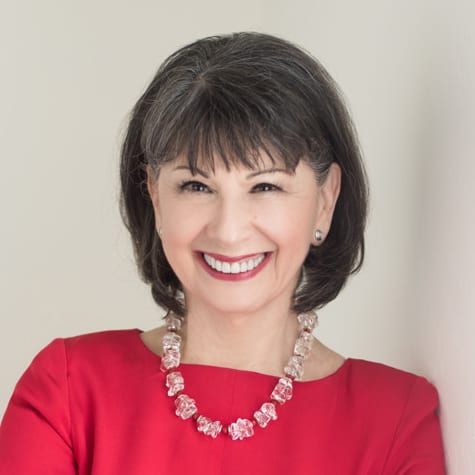Voting Power 2014

When Shirley Chisholm broke both racial and gender barriers to become the first Black woman elected to Congress in 1968 and later the first Black woman to run for U. S. president, she leapfrogged over more barriers to power than any woman considering a run today can even imagine.
Was she conflicted in her relationship with power? Just the opposite as the quote above indicates. How did she get that way and what can we learn from her on Election Day 2014?
My systematic research into many women’s ambivalent relationship with power began during the 2008 election season, when I wrote an article for Elle magazine about why women do—or as I came to find out, more often don’t—run for office.
Though women constituted 53% of the voters in 2012, Congress is less than 20% female and state legislatures are not much better.
At the rate women are advancing in Congress, it will be 60 years before gender leadership parity is reached. But more astounding is what I found in 2008 that stopped me short: it’s no longer external, structural barriers, though some do still exist, but internal ones that hold women back from fully embracing their political power. And there are far more similarities than differences in how this dynamic plays itself out in the seemingly divergent realms of work, politics, and personal relationships.

Image via Rutgers
The personal is, was, and always will be, political.
I wanted to learn more: to understand what internalized values, implicit biases, assumptions, and beliefs about ourselves we as women haul around, like worthless cargo, hindering the full attainment of our potential as leaders and doers—what intricate personal and cultural constructs of power, the silent sinews that bind not only our political intentions, but our work lives and even our love lives.
 Paradoxically, I’ve spent most of my adult life working for justice and power for others—African Americans, poor kids, other women. Not, as Jerry Seinfeld would say, that there’s anything wrong with that. In fact, I feel blessed to have been able to make my life’s passion for social justice into my life’s work. And my path is not so different from gendered behavior regarded (and rewarded) as laudable—being nice, putting the needs of others first.
Paradoxically, I’ve spent most of my adult life working for justice and power for others—African Americans, poor kids, other women. Not, as Jerry Seinfeld would say, that there’s anything wrong with that. In fact, I feel blessed to have been able to make my life’s passion for social justice into my life’s work. And my path is not so different from gendered behavior regarded (and rewarded) as laudable—being nice, putting the needs of others first.
Which is the point. Fighting for others seemed worthy. Fighting for myself, or something I wanted, did not. And many younger women today tell me they experience similar reticence, even as they seek role models and mentors to teach them differently.
Yet all effective leadership is rooted in the language of power and the willingness to embrace the power one has. If women are ever to complete our staccato journey to equality, we must join the discourse and become deliberately fluent in power’s meanings and nuances.
While the men around us operate as though they own the world—because, for the most part, they do—women have to work consciously to assume that place of intentional power and agency. Women’s inner struggles parallel the pushme-pullyou history of our social and political advances.
It’s this relationship with power—almost a spiritual factor, rarely acknowledged by the metrics or even the philosophers, which I’ve witnessed in myself and countless other women—that fascinated me and propelled me to undertake writing my book, No Excuses, ultimately leading me to cofound Take The Lead. For until we redefine our relationship with power, we will stay stuck in our half-finished revolution.
And that matters for two reasons.
First, we will remain able to excuse and justify our lack of progress by pointing outward rather than owning our part of the responsibility to take the harder road of pushing forward courageously as Chisholm did.
Second, until we can stand confidently in our own power, we won’t be able to lead ourselves or others with intention. If we allow that to happen, both women and men will remain constrained within lives of limited gender stereotyped possibilities, lives that keep us all from achieving our full human potential.
The Right Honorable Kim Campbell, former prime minister of Canada (and the first head of that nation’s government), put it this way: “Look, power exists. Somebody is going to have it. If you would exercise it ethically, why not you? I love power. I’m power-hungry because when I have power I can make things happen, can serve my community, can influence decisions, I can accomplish things.”
Why not you, indeed? Why not any one of us?
And if a courageous woman like Shirley Chisholm could blast through seemingly impermeable barriers to run for president half a century ago, surely each and every one of us can at a minimum honor her memory by voting today and every Election Day.

GLORIA FELDT is the New York Times bestselling author of several books including No Excuses: 9 Ways Women Can Change How We Think About Power, a sought-after speaker and frequent contributor to major news outlets, and the Co-Founder and President of Take The Lead. People has called her “the voice of experience,” and among the many honors she has been given, Vanity Fair called her one of America’s “Top 200 Women Legends, Leaders, and Trailblazers,” and Glamour chose her as a “Woman of the Year.”
As co-founder and president of Take The Lead, a leading women’s leadership nonprofit, her mission is to achieve gender parity by 2025 through innovative training programs, workshops, a groundbreaking 50 Women Can Change The World immersive, online courses, a free weekly newsletter, and events including a monthly Virtual Happy Hour program and a Take The Lead Day symposium that reached over 400,000 women globally in 2017.
